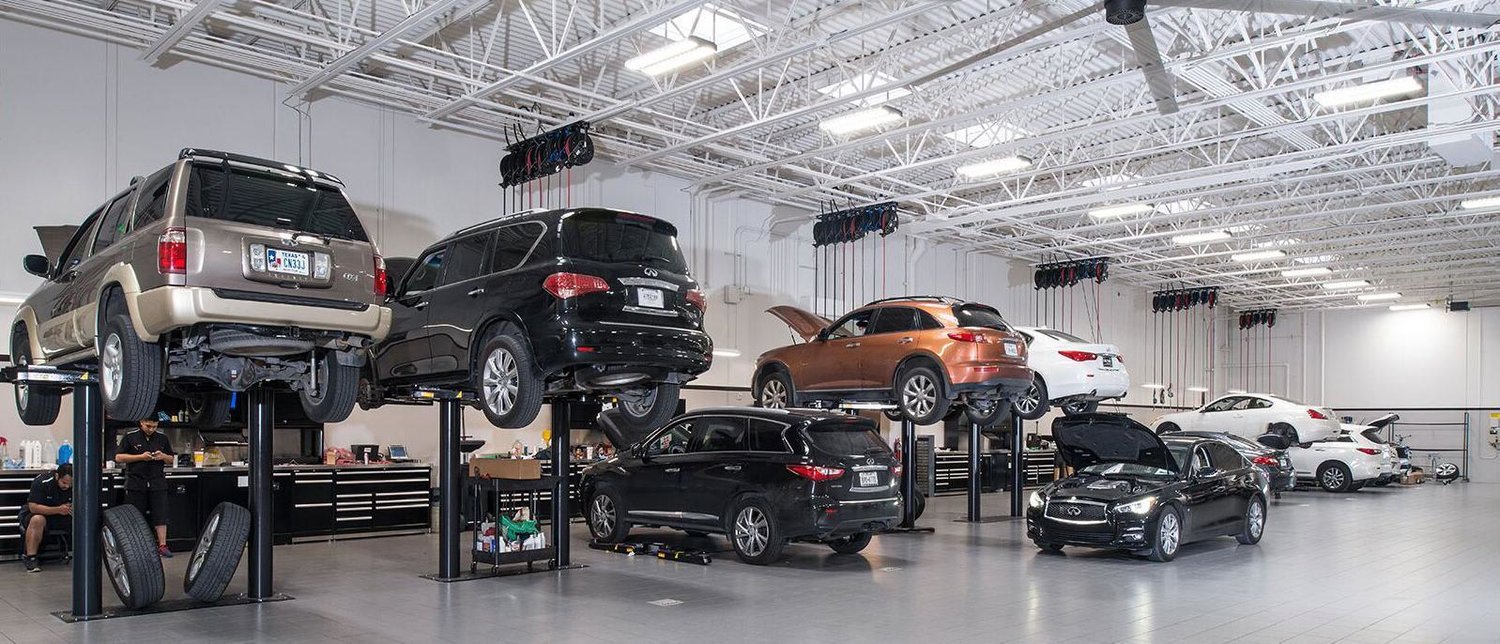All Categories
Featured
Brakes are probably the most essential safety and security attribute of any type of car. Without reputable brakes, also the most powerful car can come to be a risk on the road.
- The Importance of Regular Brake Inspections. Brakes undertake constant deterioration with every use, whether you're driving at broadband on the freeway or travelling via city streets. In time, brake pads, blades, and various other parts put on down, which can impact stopping efficiency. Without routine examinations, you might not notice the steady decrease in efficiency up until it's far too late.
Routine brake assessments allow you to capture issues early, ensuring that your brakes remain receptive, dependable, and safe. Timely assessments can also save you cash by resolving minor concerns before they end up being expensive repair work.
- Usual Indicators That Your Brakes Required Interest. While regular brake examinations are essential, there are some indication you can look out for to know when it's time to schedule a check-up:
Squeaking or Grinding Appears: Shrill squeaks or grinding noises when using the brakes are commonly indications that your brake pads are broken and require replacement. Vibration or Pulsation: If you feel resonances in the guiding wheel or the brake pedal, it could suggest warped blades, which might need resurfacing or changing. Soft or Mushy Brake Pedal: If the brake pedal feels unusually soft or spongy, there might be air in the brake lines or a trouble with the master cylinder. Pulling to One Side: If your car pulls to one side while stopping, this might be triggered by irregular brake pad wear or an issue with the brake liquid. Increased Stopping Distance: If it takes longer to stop than normal, it may suggest that the brake pads are worn, the fluid is reduced, or the rotors are harmed. If you see any of these signs, it's best to have your brakes inspected promptly.

- Secret Elements Checked During Brake Inspections. During a brake examination, a technician will certainly check numerous vital parts of the stopping system to make certain whatever is functioning correctly. Below are the vital parts included:
Brake Pads: One of the most typical factor for poor stopping efficiency is damaged brake pads. Examining the thickness of the pads is a concern throughout every inspection. Brake Rotors: Rotors should be smooth and devoid of grooves or fractures. Any considerable damages to the blades might result in jeopardized stopping performance and uneven pad wear. Brake Liquid: Reduced or polluted brake liquid can hinder stopping performance. The professional will certainly examine the liquid degrees and high quality and change it if necessary. Brake Lines and Tubes: Brake lines should be devoid of leakages or cracks. Any type of damage to the lines can result in loss of brake fluid, bring about brake failing. Brake Calipers: The calipers use stress to the brake pads. They ought to be examined for indicators of wear or leakages to guarantee they are working appropriately. Regularly examining these components aids maintain your brake system in peak problem, enabling you to quit your vehicle securely and successfully.
- Just how Frequently Should You Have Your Brakes Examined? The general referral is to have your brakes evaluated at the very least yearly or every 12,000 miles, depending upon your driving behaviors. Certain driving problems may call for even more regular examinations:
Hefty Web Traffic: If you frequently drive in stop-and-go traffic, your brake pads will put on down faster. Hill Driving: Driving on steep roadways calls for even more regular stopping, which can trigger your brakes to put on more quickly. Towing or Hauling Heavy Plenties: If you on a regular basis bring hefty lots, your brakes will experience a lot more stress and anxiety and require more frequent evaluations. If you see any of the warning indications pointed out earlier, don't wait for the following scheduled evaluation-- have your brakes inspected right away.
- The Repercussions of Overlooking Brake Inspections. Overlooking normal brake assessments can result in significant effects. A stopping working brake system can result in minimized stopping power, which boosts your threat of mishaps. Neglecting brake maintenance can also bring about a lot more pricey repair work. If you delay replacing used brake pads, the damages could prolong to the rotors, leading to the need for blades substitute, which is a much extra pricey repair work.
In the most awful instance, driving with damaged brakes can lead to complete brake failure, placing you and other motorists in danger. Regular brake examinations are a tiny investment that can save your life and stop pricey repairs.
- Final Thought: Stay Safe with Routine Brake Inspections. Brakes are not something you intend to take chances with. A trusted stopping system is essential for secure driving, and regular brake examinations are a simple way to guarantee that your vehicle quits when you require it most. By remaining on top of brake upkeep, looking for warning indicators, and having your brakes checked at the suggested periods, you'll secure both your lorry and your safety.
Don't wait till your brakes start to fail-- routine regular brake evaluations and keep your lorry in optimal problem for several years ahead.
Latest Posts
Uncover Outstanding Car Repair Care from Montclare Auto Repair – Expert Care for Your Vehicle
Discover Special Auto Repair Specials in Chicago at Montclare Auto Repair
Unlock Your Financial Partner at WyHy – Financial Freedom for Your Success
More
Latest Posts
Uncover Outstanding Car Repair Care from Montclare Auto Repair – Expert Care for Your Vehicle
Discover Special Auto Repair Specials in Chicago at Montclare Auto Repair
Unlock Your Financial Partner at WyHy – Financial Freedom for Your Success
